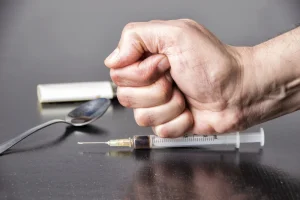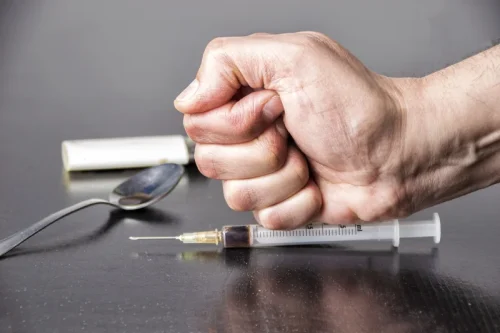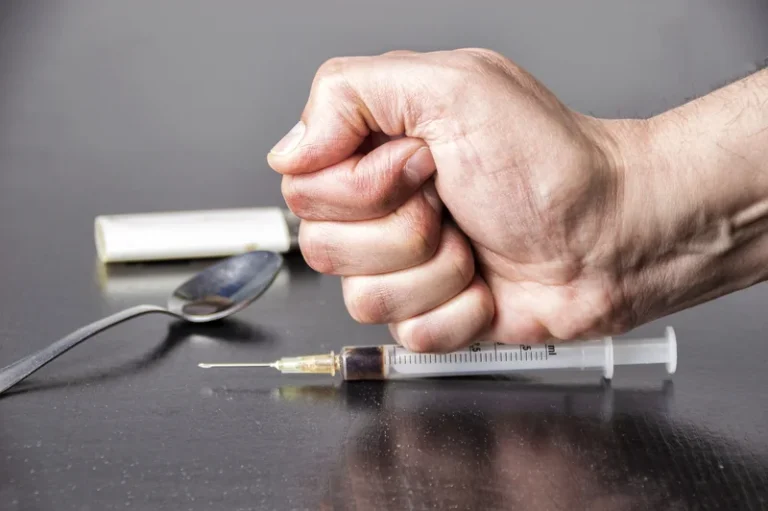Is Alcohol Use Disorder Genetic?
- Posted by host
- Posted in Sober living

Neurobiological research progress can utilize genetic information to move beyond the DSM toward more logical disease groups based on biology. Genetic research progress can help us find new therapeutics based on this knowledge. Genetic research progress like that reported by the Gelertner laboratory at Yale helps everyone understand that addiction is a complex and multifactorial-determined disease. The children of individuals dealing with AUD often face challenges with the same condition as they grow older.
- All authors critically reviewed content and approved the final version for publication.
- Alcohol use disorder has become a prevalent problem that affects even the youth.
- However, genetics is just one piece of the puzzle, as environmental factors also play a crucial role.
Can a Person Be Born with an Alcohol Use Disorder?
This might increase the likelihood that they will also develop alcohol use disorder. Studies have shown that if a person has a family history of alcohol use disorder there is a 50% chance that the individual will be predisposed to this disorder. However, all of the specific genetic factors that cause a person to be predisposed to alcohol use disorder are still being studied. Researchers agree that it is important to be able to identify the biological factors that make a person predisposed to this disease as this can be a vital step in helping to control it.
Environmental Factors Vs. DNA

This is important because research is increasingly leading us to believe that susceptibility to addiction may have an epigenetic factor. The FHE Health team is committed to providing accurate information that adheres to the highest standards of writing. This is part of our ongoing commitment to ensure FHE Health is trusted as a leader in mental health and addiction care.
What are the chances of inheriting AUD from your parents?
- A quality rehabilitation center will offer therapy, counseling, and stress management alongside helping you to detox – which will enable you to build the skills to live a healthy life without alcohol.
- You could also look for support groups online or in your area for people with substance use disorders.
- For example, specific genes related to alcohol metabolism may affect a person’s alcohol tolerance and the potential of having problematic drinking behaviors.
- These tiny changes create heritable traits without impacting DNA, because they typically happen during development rather than as part of development.
Thirty-seven genome-wide significant loci (105 variants) were identified, of which seven were novel for AUD and six for other alcohol phenotypes. African-specific analysis yielded a unique pattern of immune-related gene sets. Leveraging a cross-ancestry approach allowed identification of novel genetic loci for AUD and underscores the value of multi-ancestry genetic studies. These findings advance our understanding of AUD risk and clinically relevant comorbidities. In summary, it seems there are several reasons that alcohol abuse can run in families. These include both genetics and environmental factors, and possibly even a combination of the two.

Can a family history of alcoholism increase the risk of developing the condition?

This suggests that there’s something specific in the genetic makeup of identical male twins that makes them more likely to develop AUD if one twin has it, compared to females. For example, Eric Nestler researches these changes using cocaine experiments in rats. He has shown that a cocaine user could have changes to their epigenetic markers for months or even years after they stop using, and that these changes are passed on to children. These modifications are seen for addictive substances including alcohol, nicotine, cocaine, amphetamine, and opiates. While the short answer is no, you can’t inherit addiction, the long answer is a lot more complex. Your genetics can affect how you react to alcohol and to other substances, as well as your likelihood of addiction.

Is Alcoholism Genetic? Here’s What You Need to Know
AUD affects millions of people, and its causes can be traced to a mix of genetic, environmental, and social factors. Studies suggests that triggers in your environment can alter the way your genes express themselves—effectively turning genes on or off. What’s even more interesting is that you may be able to partially pass https://ecosoberhouse.com/ these changes on. Your life experience, and that of your family, may in some ways change your DNA. Other studies on children of alcoholics have found links between having an alcoholic parent, and problems like depression, anxiety, and low self-esteem. To begin with, there is significant evidence that alcohol abuse can be passed down from generation to generation.
Doctors and addiction treatment professionals utilize multiple testing instruments to garner an accurate diagnosis of your symptoms. Because there how do genetics affect a persons likelihood for becoming an alcoholic? are no specific alcoholism genetic tests, blood tests, or brain imaging scans to guarantee an AUD, they must take advantage of other testing methods. Environmental and social factors, such as one’s family, mental illness, and social and cultural norms around drinking, also have an impact. Alcoholism, also known as alcohol addiction or alcohol use disorder (AUD), is a chronic condition that may damage relationships, impact mental health, and lead to physical harm.
Specific genes can influence how your body processes alcohol, how your brain reacts to it, and how susceptible you are to developing a dependency. However, having these genetic traits does not guarantee you will develop alcoholism; environmental and personal choices also play a critical role. Addiction is thought to have a heritable component—meaning that a person’s genetic makeup can influence their risk of developing conditions such as an alcohol use disorder. drug addiction treatment One common reason why people become dependent on alcohol is self-medication. Anxiety, depression, and a number of other disorders are linked to excessive alcohol use.
- Many individuals with a family history of substance abuse can choose sobriety or moderate alcohol use with the right support.
- Instead of just one “alcohol gene,” researchers have identified hundreds of locations in human genetic information, each with various variations that can affect a person’s likelihood of developing AUD.
- Some protective factors, such as natural optimism, may remain fixed over time.
- We publish material that is researched, cited, edited and reviewed by licensed medical professionals.
- During recovery, the brain is relearning to cope with stress and pleasure without the influence of alcohol.
Mental Health Treatment
This is because they can consume more alcohol before feeling its effects, which may lead to more frequent and excessive drinking. On the other hand, people who metabolize alcohol slowly may be less likely to develop an AUD because they feel the effects of alcohol more quickly and may be less likely to drink excessively. While genetics play a part in addiction, the environment also influences the expression of addiction-related genes. This webpage has resources about genetics as it relates to alcohol use and health.

Identical twins share the same 23 pairs of chromosomes, making them look very similar to each other. This study is still referenced in psychological research today on platforms like ResearchGate. Someone might be more likely to develop alcohol use disorder, but it might never actually happen. Genetic predisposition happens when genes and heredity work together to make it more likely for a person to have a certain behavior, trait, or disease. But just because you have a predisposition for something doesn’t mean it will happen. For example, instances of twins are epigenetic, certain types of cancer are epigenetic, and Prader-Will syndrome are epigenetic.
